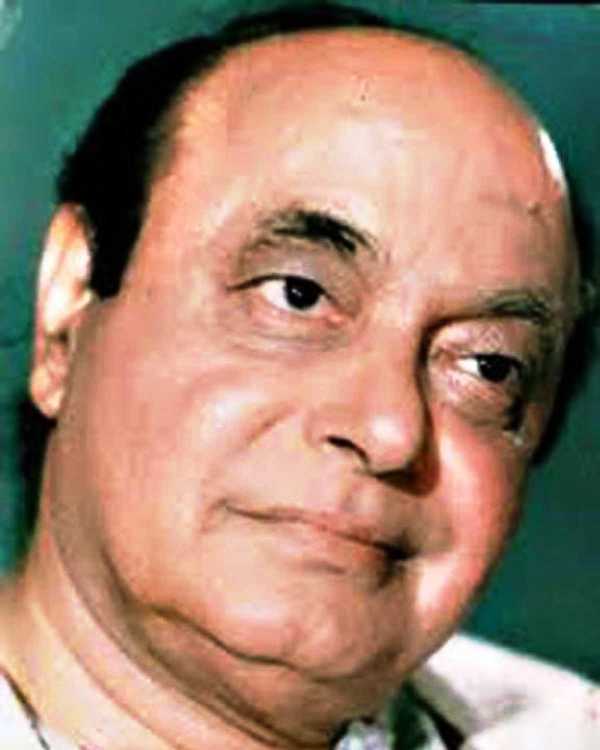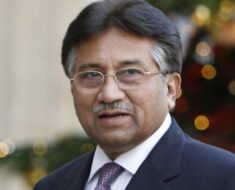Ramanand Sagar, a legendary figure in Indian cinema and television, left an indelible mark on the entertainment industry. His contributions extend far beyond his most famous work, the iconic Ramayan. This comprehensive biography explores his life, career, and enduring legacy.
Wiki/Biography
Born on Saturday, December 29, 1917, in Asal Guru Ke, Lahore (now in Pakistan), Ramanand Sagar’s zodiac sign was Capricorn. He achieved academic excellence, earning gold medals in Sanskrit and Persian from the University of Punjab in 1942. This strong educational foundation laid the groundwork for his multifaceted career.
Family & Caste
Ramanand Sagar’s origins trace back to a Kashmiri refugee background. His family lineage is notable, with his great-grandfather serving as the Nagar Shet of Kashmiri Chopras, after migrating from Peshawar to Kashmir. His grandfather had a successful business in Srinagar, and his father, Lala Dinanath Chopra, was a poet. His younger brother was Chittaranjan, and the renowned Bollywood director Vidhu Vinod Chopra is his stepbrother.
Relationships, Wife & Children
He married Leelavati Sagar and had a large family. His children included daughter Sarita Sagar and sons Subhash Sagar, Moti Sagar, Prem Sagar, and Anand Sagar. His numerous grandchildren include Meenakshi Sagar, Preeti Sagar, Akash Chopra, Amrit Sagar, Namita Sagar, Shakti Sagar, and Jyoti Sagar. His granddaughter Ganga Kadakia is a celebrated Indian painter, and he was also the grandfather of Payal Khanna, the ex-wife of Aditya Chopra.
Career
Ramanand Sagar’s creative journey began early. At just 16, he published poetry in the Shri Pratap College Magazine. Despite his academic achievements, his early career involved various jobs: a peon, truck cleaner, soap vendor, and even a goldsmith’s apprentice. This diverse experience shaped his later work.
He transitioned to journalism, working for the Daily Milap. He wrote extensively under various pseudonyms, including “Ramanand Chopra,” “Ramanand Bedi,” and “Ramanand Kashmiri.” His Bollywood career started as a clapper boy in the silent film, Raiders of the Rail Road (1932). After the 1947 partition, he moved to Mumbai, working as an assistant manager at Prithvi Theatre, and he eventually wrote the story and screenplay for Raj Kapoor’s blockbuster Barsaat (1949).
In 1950, he founded Sagar Art Private Limited, launching a prolific career as a film director and producer. His filmography includes notable Bollywood films such as Zindagi (1964), Arzoo (1965), Aankhen (1968), Charas (1976), Bhagawat (1980), and Salma (1985). His groundbreaking work, however, came in television.
His television work redefined mythological storytelling in India. Ramayan (1987), starring Arun Govil, Deepika Chikhalia, and Sunil Lahri, achieved phenomenal success. Other popular serials followed, including Vikram Aur Betaal (1986), Luv Kush (1988), Krishna (1992), and Sai Baba (2005).
Awards & Honours
Ramanand Sagar’s talent and contributions earned him prestigious accolades.
- Filmfare Awards: Best Dialogue (1960) for Paigham and Best Director (1969) for Aankhen.
- Padma Shri: Awarded in 2000 for his contributions to the arts.
Death
Ramanand Sagar passed away on December 12, 2005, at his home in Mumbai. His final rites were conducted at the Juhu-Vile Parle Crematorium.
Facts/Trivia
- Affectionately known as “Papaji” by friends and family.
- Suffered from tuberculosis at age 30, experiencing a near-death experience.
- Authored the book Aur Insaan Mar Gaya (And Humanity Died) in 1948.
- Adopted by his maternal grandmother, who changed his name from Chandramouli Chopra to Ramanand Sagar.
- His son, Prem Sagar, published a biography, An Epic Life: Ramanand Sagar, From Barsaat to Ramayan in 2019.
- Honored with Doctor of Literature (Sahitya Vachaspati) and D.Lit. (Honoris Causa).
- Ramayan enjoyed numerous re-telecasts, including during the 2020 India COVID-19 lockdown.
Key Films and Television Serials
| Year | Title | Type |
|---|---|---|
| 1964 | Zindagi | Film |
| 1987 | Ramayan | Television |
| 1968 | Aankhen | Film |
| 1986 | Vikram Aur Betaal | Television |
| 1949 | Barsaat | Film |







